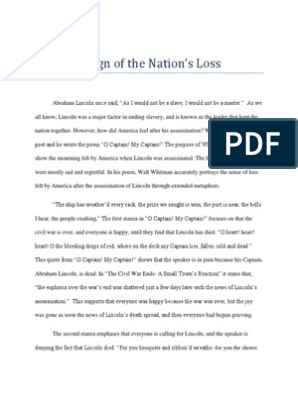0% found this document useful (0 votes)
530 views12 pagesPoetry of Walt Whitman
Walt Whitman was an influential American poet known for his collection Leaves of Grass, which broke conventions with its free form verse. Some of his major themes included democracy, nature, love, sexuality, and death. Though controversial in his time for openly addressing topics like the body and sexuality, he is now regarded as one of the most important American poets of the 19th century.
Uploaded by
katherine escobarCopyright
© © All Rights Reserved
We take content rights seriously. If you suspect this is your content, claim it here.
Available Formats
Download as PDF, TXT or read online on Scribd
0% found this document useful (0 votes)
530 views12 pagesPoetry of Walt Whitman
Walt Whitman was an influential American poet known for his collection Leaves of Grass, which broke conventions with its free form verse. Some of his major themes included democracy, nature, love, sexuality, and death. Though controversial in his time for openly addressing topics like the body and sexuality, he is now regarded as one of the most important American poets of the 19th century.
Uploaded by
katherine escobarCopyright
© © All Rights Reserved
We take content rights seriously. If you suspect this is your content, claim it here.
Available Formats
Download as PDF, TXT or read online on Scribd
/ 12






























































































